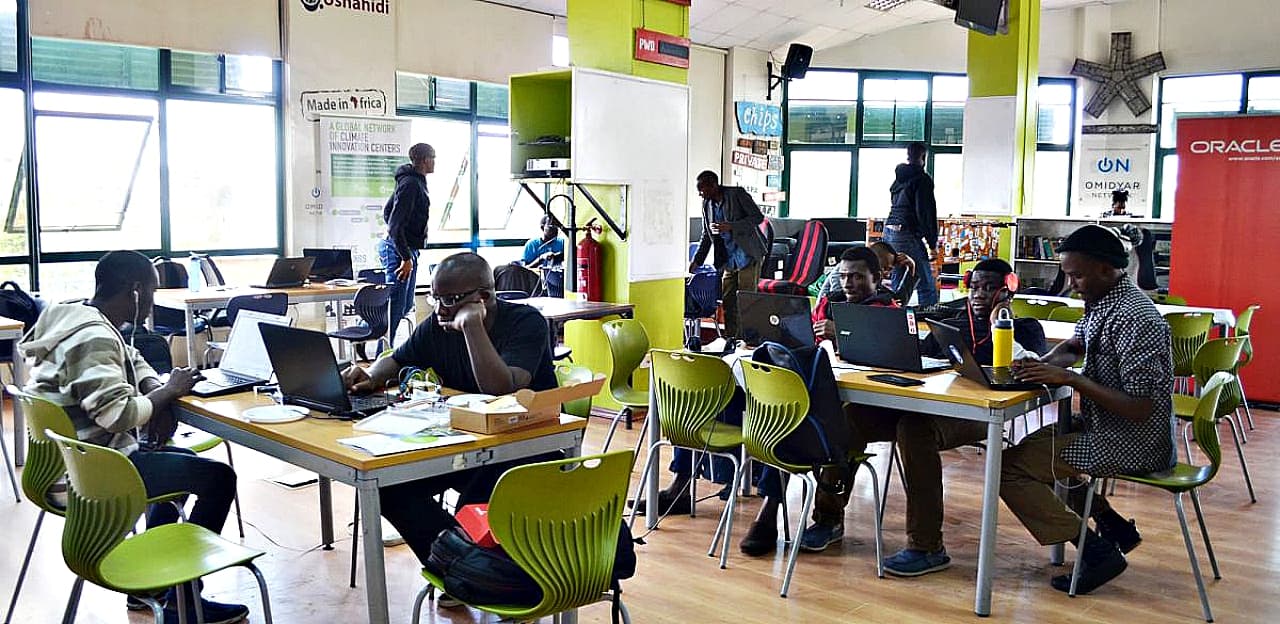We're loading the full news article for you. This includes the article content, images, author information, and related articles.
Kenya's 'Silicon Savannah' is a focal point in the continent's tech boom, but converting this vibrant potential into sustained economic growth requires navigating significant funding, infrastructure, and policy challenges.

Across Africa, a network of over 700 technology hubs is fostering innovation and reshaping economies. These hubs are critical incubators for startups in sectors like fintech, agritech, and healthtech, developing homegrown solutions to local challenges while attracting global investment. The continent's internet economy is projected to contribute as much as $180 billion to its GDP by 2025, with the digital economy potentially creating up to three million jobs within the same timeframe, according to a study by Google and the International Finance Corporation (IFC).
East Africa, and Kenya in particular, has emerged as a key driver of this transformation. Dubbed the 'Silicon Savannah,' Nairobi is one of the continent's leading innovation centers, alongside cities like Lagos, Cape Town, and Cairo. The region now hosts more than 250 active innovation hubs, a significant increase from fewer than 60 a decade ago, with Kenya alone accounting for over 100 of them.
Kenya has solidified its position as a premier destination for technology investment and innovation in Africa. In 2023, Kenyan entrepreneurs attracted nearly $800 million in funding, placing it at the top in Africa for startup capital received that year. The nation's tech ecosystem is particularly strong in fintech, climate tech, e-commerce, agritech, and healthtech. This success is built on a foundation of high mobile phone penetration and pioneering digital payment solutions like M-Pesa, which has revolutionized financial inclusion. The information and communication technology (ICT) sector in Kenya has grown at an average of 10.8% annually over the last decade, and the digital economy is expected to contribute 9.24% of the country's GDP by 2025.
The Kenyan government has actively supported this growth through policies and strategic projects. Initiatives like the National ICT Policy, Kenya Vision 2030, and the Konza Technopolis City project are designed to create a robust, knowledge-based economy. These frameworks aim to expand ICT infrastructure, promote digital literacy, and establish innovation hubs to nurture startups. Furthermore, the government's Digital Superhighway Project, announced in February 2023, plans to lay 100,000 kilometers of fiber optic cable and establish 25,000 public Wi-Fi hotspots to enhance connectivity nationwide.
Venture capital investment in Africa has shown resilience and significant growth, despite global economic challenges. After a downturn in 2024, which saw a 25% decrease in funding from 2023, the first half of 2025 has marked a strong recovery. African startups raised over $1.4 billion in the first half of 2025, a 78% increase compared to the same period in 2024. Kenya, along with Nigeria, Egypt, and South Africa—collectively known as the "Big Four"—consistently attracts the majority of this investment. In 2024, East Africa was the leading region for venture capital funding, securing $725 million.
Innovation hubs like Nairobi's iHub, founded in 2010, have been instrumental in this success, supporting hundreds of startups and attracting millions in investment. These hubs provide crucial mentorship, networking opportunities, and access to funding that are vital for early-stage companies.
Despite the optimistic growth trajectory, African tech hubs and startups face considerable obstacles. Limited access to funding, particularly for early-stage ventures, remains a primary challenge. While investment is increasing, it is heavily concentrated in a few key markets, leaving many entrepreneurs in other regions underserved.
Infrastructural deficits, including unreliable electricity and high internet costs, also pose significant hurdles. Africa accounts for less than 1% of the world's data center capacity, and analysts estimate that at least 700 new data centers are needed to meet growing demand. Furthermore, regulatory uncertainty and policy instability can disrupt business operations and deter investment. The competition for skilled talent is also intensifying, with the entry of global tech giants into markets like Nairobi creating challenges for local startups in retaining top engineers and managers.
To translate the continent's vast technological potential into sustainable economic power, a concerted effort from both the public and private sectors is required. This includes developing more supportive and consistent regulatory frameworks, investing in critical infrastructure, and expanding access to education and digital skills training. For Kenya and the wider East Africa region, continued investment in its innovation ecosystem is not just an opportunity for economic growth, but a necessity for securing a competitive position in the global digital economy. FURTHER INVESTIGATION REQUIRED.
Keep the conversation in one place—threads here stay linked to the story and in the forums.
Sign in to start a discussion
Start a conversation about this story and keep it linked here.
Other hot threads
E-sports and Gaming Community in Kenya
Active 9 months ago
The Role of Technology in Modern Agriculture (AgriTech)
Active 9 months ago
Popular Recreational Activities Across Counties
Active 9 months ago
Investing in Youth Sports Development Programs
Active 9 months ago